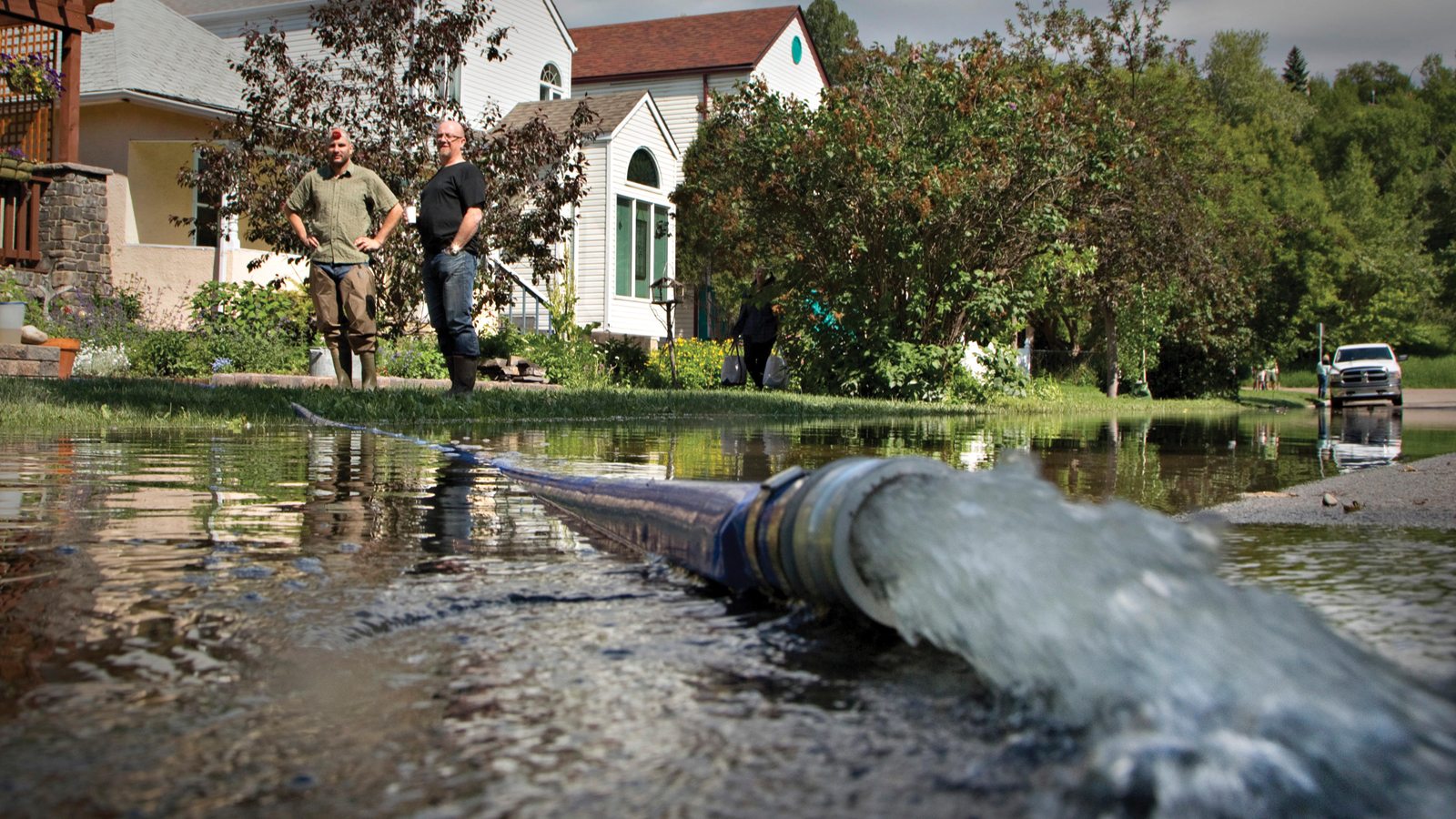Set aside some time this season to achieve peace of mind—by assembling a 72-hour home emergency kit in preparation for worst-case scenarios. In Alberta, flooding and wildfires are two of the biggest risks, according to Dr. Timothy Haney, director of the Centre for Community Disaster Research at Mount Royal University in Calgary. The Centre helped Alberta residents recover from events such as 2013’s Southern Alberta floods and 2016’s Fort McMurray fire.
“People tend to focus on surviving the event,” Haney says. But what happens if you have to stay in your home and your food, water and electricity supplies are cut off? Having a home emergency kit can make a big difference. “Every time you go out, buy a couple of items to stow in a suitcase under your bed,” Haney advises. “Over time your kit will become complete.”
And don’t believe the movies. “Panic is really uncommon in disasters. People respond rationally and take care of their communities. We know this from 50 years of research in the field.”
ESSENTIALS FOR YOUR KIT
These basics are indispensable when it comes to ensuring your family can remain relatively well off in the event of a disaster
Water
Stash four litres of water per person, per day, for drinking—as well as for preparing food.
Food
Choose non-perishable dried or canned foods that don’t require cooking: granola and protein bars, dried fruit and tuna fish (pack a can opener).
MORE TO READ
AMA offers a new way to protect your home from water damage
Light source
Consider buying a wind-up flashlight that doesn’t need batteries.
Warm clothes, blankets and/or sleeping bags
Wool is warm and naturally water resistant. It’ll keep you cozier than cotton.
First aid kit
Antiseptic wipes, sterile gauze pads and bandages to clean and protect cuts and scrapes.
Hygiene
You’ll miss toilet paper and feminine hygiene products if you don’t have them. Hand sanitizer can help kill germs when soap and water are scarce.
Garbage bags
Use them to protect items from water and dirt, as well as for trash.
WE’VE GOT YOU COVERED
Safety first: Pick up a complete first aid kit (member price: $31.99) from your local AMA centre.
Highway helper: The unexpected doesn’t only happen at home, of course. Make sure you’re prepared for emergencies while on the road by keeping a roadside emergency kit in your vehicle’s trunk. Fully stocked kits can be purchased at all AMA centres.
